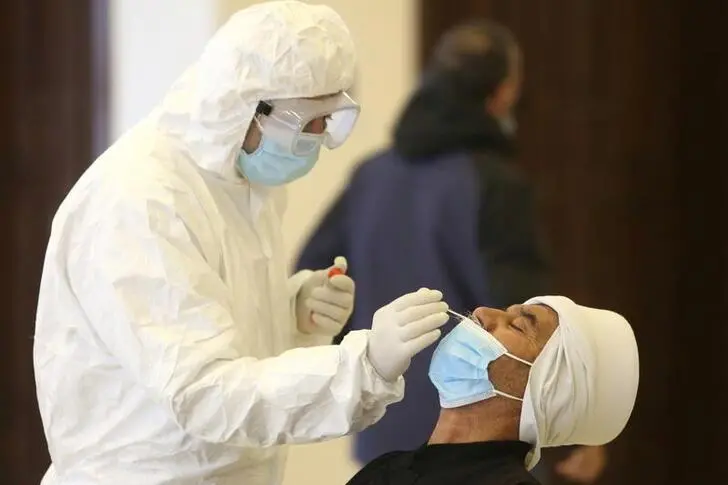PHOTO
BEIRUT: The migrant worker community in Lebanon has not been included in the governments national coronavirus vaccination program, leaving the Labor Ministry and UN agencies to concoct a plan to inoculate the estimated 250,000 migrant workers in Lebanon, the caretaker labor minister told The Daily Star.
At the Labor Ministry, we are concerned about migrant workers, they were not included in the plan with the Health Ministry that is why we are making some steps, MP Lamia Yammine Douaihy said.
Caretaker Health Minister Hamad Hasan announced that the national coronavirus vaccination program, due to begin this weekend with the arrival of 28,000 doses from Pfizer-BioNTech, aims to vaccinate at least 80 percent of Lebanons 6 million population, giving priority to health sector workers, the elderly, and those with pre-existing health conditions, before allowing the rest of the population to be vaccinated.
Hasan has also stressed that vaccines will be available to residents of different nationalities residing in Lebanon, and free of charge, citing the need to achieve strong levels of immunity across the country in order to weaken the virus and begin to reopen society.
Despite this, the program has so far failed to address migrant workers, which has resulted in the Labor Ministry issuing a communique on Feb. 1 recommending all employers vaccinate their staff -- Lebanese or migrant workers in all sectors -- based on the requirements of health and safety in the workplace which is contracted by the Labor Law.
Douaihy said the health minister welcomed the plan, which is in coordination with the UNs International Organization for Migration (IOM).
We are meeting with the IOM to get funds for this category of people. I talked to the health minister. We agreed on the need for funds because they are not included in the plan. We are working with embassies too, Douaihy said.
"I sent letters to all embassies in Lebanon, because as you know we have data problems, because we have a lot of illegal migrant workers working here, she added.
The most recent estimate for the total number of migrant workers in Lebanon from 2018 documents is 250,000 from countries such as Bangladesh, Ethiopia, the Philippines, and Sierra Leone among others.
However, NGOs and embassies dispute the figure, due to both a repatriation of workers since the start of Lebanons economic crisis and many workers over the years becoming undocumented. The countrys US dollar shortage and rampant inflation has resulted in employers struggling to pay staff, who have resorted to leaving employees outside consulates with few belongings, no documents, and often owed months to years' worth of wages.
As a result, consulates and local NGOs have been working to repatriate hundreds of citizens over the last 12 months.
The IOM is in discussion with embassies to propose a temporary document for workers that will enable them to sign up for the vaccine using the Health Ministry's online registration form. At present, those who do not have a valid ID are unable to register.
We have to negotiate with the Health Ministry to have a document with a number and signature to be temporarily in use for inclusion in the Impact platform, Dr. Samir Hadgiabduli, IOMs chief migration health officer, explained to The Daily Star.
Many migrants are without official documentation due to the employment system in Lebanon, known as kafala, in which workers are bound by a sponsorship system between employer and employee, putting workers at total subordination to the will of their employers that has created ripe conditions for abuse.
As such, employers often confiscate passports or fail to renew work permits, leaving workers in effect illegal in Lebanon, while others run away from abusive households and seek refuge in consulates or local charities.
Embassies will have a huge task ahead of them to cater to their citizens vaccinations. Some consulates, for example, the Ethiopian and Bangladeshi, are already overwhelmed by the rising demand from their nationals wishing to return home due to Lebanons economic meltdown, which has been exasperated by the health pandemic.
Douaihy admitted the issue of undocumented migrants is complicated and will take a longer time to arrange into a vaccination program, as embassies work to produce the latest numbers.
Douaihy was unable to reveal any timeline for the inoculation as plans are still in negotiation, but emphasized that the ministry will be meeting regularly with the IOM and the appropriate embassies as It is our mandate and responsibility to take care of migrant workers.
Copyright 2021, The Daily Star. All rights reserved. Provided by SyndiGate Media Inc. (Syndigate.info).





















